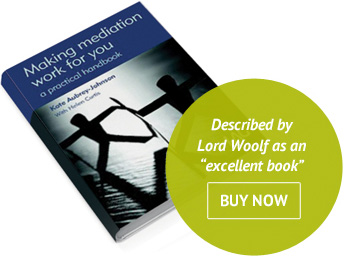BLOG
Confidentiality – Seamless or a Thing of Shreds and Patches? By David Watkinson
June 28, 2020
Introduction
What happens at a mediation stays in the mediation (except so far as necessary for enforcement of the settlement). So mediators are taught and so they inform the parties. And that is emphasised in any Agreement to Mediate (the Garden Court standard Agreement contains a confidentiality clause which includes five sub-clauses). Confidentiality applies to the transactions between the parties, obviously to the members of each party’s team and to communications between each party and the mediator (unless authorised) and in relation to the world outside including the court room in perpetuity.
However, a recent case illustrates the variety of occasions when confidentiality may not apply.
The case
It is Berkeley Square Holdings Ltd v Lancer Property Asset Management Ltd [2020] EWHC 1015 (Ch) Roth J (1st May 2020). Briefly, an offshore company claimed against its previous asset managers the proceeds of payments made by it to the defendants as a result of fraud. The company claimed it had not known about the payments made until shortly before the proceedings. The defendant company wanted to rely on passages in its position statement in a (successful) mediation some five years before in which the payments had been referred to. So the issue before the court was whether those passages were admissible. (The issue at the mediation had been over the amount of the defendant’s management fees).
The result
Roth J, in a thorough examination of the case-law, helpfully set out the exceptions to the without prejudice (WP) or confidentiality rule (para 43 of the judgment). He focussed on that which applied when a claimant wanted to rely on what was said in confidential/WP negotiations in order to establish that fraud or misrepresentation had led to the agreement or because the absence of disclosure would act as a cloak for perjury, blackmail or “unambiguous impropriety” (the latter to be applied in the clearest cases).
Both these exceptions expressly related to instances in which the party seeking disclosure was doing so in order to show there had been fraudulent or similar conduct. In this case the defendant was seeking disclosure to support its case that there was no fraud. In effect, what was sauce for the goose was sauce for the gander. As the defendants argued “It cannot be right that without prejudice communications can be referred to in order to undermine an apparently valid compromise but not to uphold it.” (para 51).
The learned judge agreed, holding ‘the statements here are admissible either under the exception properly interpreted or by reason of a small but principled extension of it to serve the interests of justice” (para 52).
The other exceptions
There were other exceptions set out in the judgment. They were not referred to as the only ones but as “the most important instances”. They were:
It is to be noted that none of these exceptions would overturn the settlement itself.
Conclusion
In essence, this case is an example of the legal maxim “fraud unravels all”. It would plainly be unfair to allow disclosure of evidence of fraud but to refuse to allow disclosure which rebuts an allegation of it. Agreementsto Mediate enable lawful exemptions and, as the judge observed, the operation of the law would do so in any event. What the case does demonstrate however is that the occasions when confidentiality can be over-ridden may be rather more elastic than previously thought, though still restricted.

